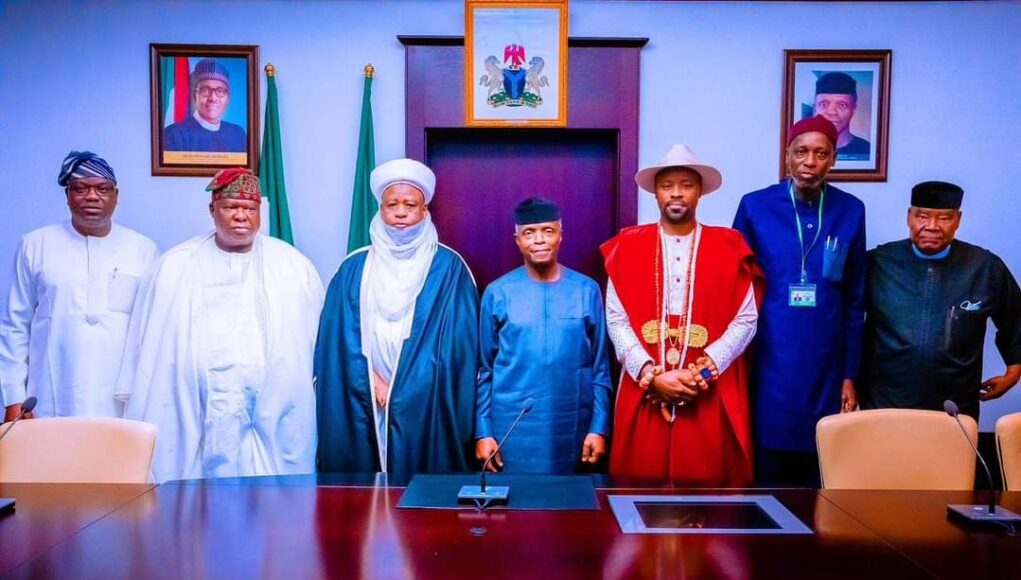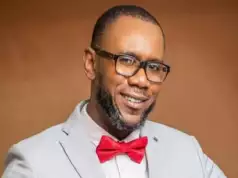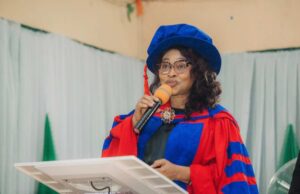Vice President, Prof. Yemi Osinbajo on Thursday at the Presidential Villa stated that the task of the National Institute for Policy and Strategic Studies, NIPSS, was to determine how it would affect human history beginning with Nigeria.
Osinbajo, who highlighted the need to reposition NIPSS, recalibrate its visibility, and attract significant financial backing from the private sector and other non-public sector sources, said, “one of the reasons why a think-tank is effective is because it is a place where people think and develop ideas because ideas make the difference. This is why countries that have made progress continue to seek ways not just in developing their own think-tanks, but in looking for other think-tanks they can collaborate with because there is so much happening around the world and a lot of collaboration is necessary.”
Continuing, the VP said, “one of the critical things for us in NIPSS is to, first of all, realize that the most important part of our work in the coming years would be really thinking and developing ideas.
Prof. Osinbajo identified other areas that should concern NIPSS including developing ideas on how to get extreme poverty out of the country and address climate change issues, among others.
According to him, “our country is a nation of 200 million people, growing at 6 million a year and poverty is almost at 60%, even more, extreme poverty. In another few years, we are going to become the third most populous country in the world. We have to devise a strategy to get out of that poverty.
“It is our foremost think-tank that ought to be in the forefront of thinking how we are going to deal with the situation, politicians will come and go. Our think tanks must be able to provide a tactical roadmap to move from where we are to get to where we ought to be.
“And that is the same for every other thing. Everyone is talking about Climate Change and what is going to happen to the world. People are thinking about these things time and time again, but we need to have our own think-tank come up with policies and ideas about what we need to do.”
The consensus was that the time had come for the National Institute to take its place as a foremost institute along the lines of notable globally ranked think tanks.
Earlier in his remarks, the Sultan of Sokoto restated the trustees’ commitment to serving and assured the VP of their preparedness to deliver on the mandate.
According to him, the trustees are set to “make the institute the best it can be,” explaining that the interaction with the VP was to hear from him on what should be done.
He added that the trustees will also interact with the Alumni of NIPSS saying “we take this assignment very seriously.”
On his part, the DG of NIPSS, Prof. Ayo Omotayo, reiterated the importance of finding alternative sources of funding for research, infrastructure upgrade, and other activities at the institution.
He assured the VP and the BOT members of management’s commitment to leave a legacy of commitment to service and accountability in the management of the funds raised.
Trustees also contributed during the interaction, including the Olu of Warri, Ogiame Atuwatse III; Gbong Gwom Jos, Chief Jacob Buba Gyang; Chairman of the Board of the Nigeria Communication Commission, Prof. Adeolu Akande; Chairman of Overt Energy, Chief Marc Wabara, a legal luminary, Yusuf Alli, SAN; and Prince Julius Adelusi Adeluyi, who joined virtually.
In the vote of thanks at the end of the interaction, Prof. Akande told the VP that “our understanding of the assignment has been better enriched” and expressed optimism the trustees will deliver on the task.










